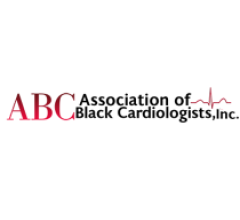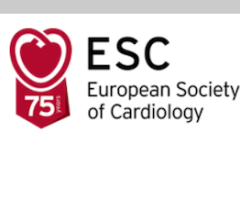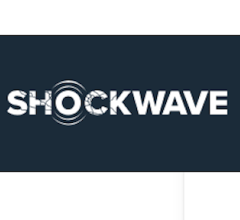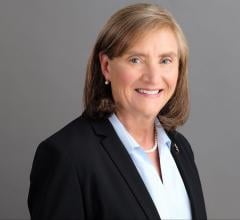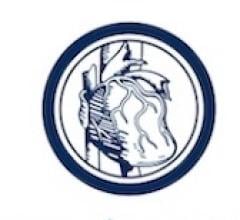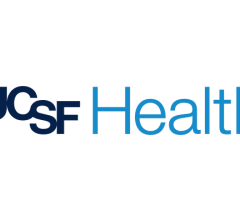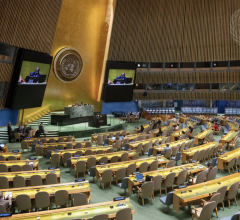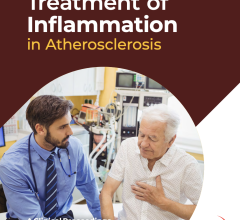
The Transcatheter Cardiovascular Therapeutics (TCT) conference, which is the Cardiovascular Research Foundation's (CRF) annual scientific symposium and one of the world's foremost educational forum specializing in interventional cardiovascular medicine, is marking its 34th year in 2022, from September 16-19 in Boston, returning to its pre-pandemic format. Founded by Martin B. Leon, MD, as a small gathering of 150 in 1988, TCT has since grown to more than 10,000 attendees representing over 100 countries.
Every year, TCT features major medical research breakthroughs and gathers leading researchers and clinicians from around the world to present and discuss the latest evidence-based research. Here the DAIC editors outline some highlights of what to expect from this year’s conference.
MedTech Innovation Forum
The four-day conference begins with a transition day that includes the MedTech Innovation Forum. This is a new addition to the program, as CRF joins forces with Fogarty Innovation for an intensive, interactive, all-day summit. The mission of the TCT MedTech Innovation Forum, a global assembly of major stakeholders involved in MedTech innovation is to identify, address and formulate solutions to some of the major challenges experienced by the MedTech field to date. The organizers of the Summit aim to accomplish this by facilitating open discussion among clinicians, entrepreneurs, investors, payors, and regulators, with the goal of offering insights based on real-world data and experience.
Comprehensive Program
The set-up of TCT’s program this year includes three main feeder categories: case-based coronary content, case-based structural content and endovascular content. Juan Grenada, MD, president and chief executive officer at the Cardiovascular Research Foundation and sponsor of the meeting, explained in a press conference that it is referred to as case-based because the conference is trying to incorporate a format that starts with a case that is followed by didactics to integrate the talks into the practical aspects of case based-learning. In addition, the conference will include an innovation room, a separate room where all innovation sessions will take place, and other venues including training pavilions, engagement hubs and presentation theaters where other sessions will occur.
Best Practice Sessions
In addition, TCT will feature several sessions that were created in partnership with the American Heart Association (AHA). TCT felt it would be important to have its guidelines incorporated into clinical practice. These are called the Best Practice sessions, and will be held on Saturday, Sunday and Monday.
The sessions include:
Saturday, Sept. 17:
AHA at TCT: Coronary Best Practice I Moderated Case Discussions in Stable Ischemic Heart Disease
8-9:30 am
AHA at TCT: Vascular Discover Session on Hypertension Therapies: Present and Future
9:30-10:45 am
Sunday, Sept. 18:
8-9:30 am
AHA at TCT: Vascular Discover Session: State-of-the-Art VTE Controversies and Conversations
9:30-10:45 am
Monday, Sept. 19:
AHA at TCT: Best Practices Coronary Session II: ACS
8-9:30 am
Live Case Sessions
TCT’s live case discussions are live cases packaged within the context of clinical didactic content. Ajay Kirtane, MD, Professor of Medicine at Columbia University Irving Medical Center and Director of the Cardiac Catheterization Laboratories at New York-Presbyterian/Columbia University Irving Medical Center, explained that all the cases are going to be within portions of other sessions, basically touching those aspects and facets of interventional cardiology, adding that this something new they are trying this year. The Live Case Sessions include a broad representation of sites from around the world, doing routine cases that are accessible to the everyday practitioner, but also cases that might involve devices not approved in the United States.
Career Transition Sessions
The Career Transition Sessions are targeted to practitioners to help with transition at various phases of their career. They will be held in lounges that attendees can walk past on their way to other sessions, and will feature open-air discussions about career development. TCT has partnered with both the American College of Cardiology (ACC) and the Society for Cardiovascular Angiography & Interventions (SCAI) on some of those sessions as well.
Late-breaking Clinical Science
Thirty-two late-breaking clinical science presentations will be featured at the conference. Several are randomized clinical trials and other types of late-breaking science that are being presented. They are broken down into sessions specifically on structural heart, coronary and vascular areas.
“One unique thing this year, in addition to the late-breaking science sessions, which there are two every day, one in the morning, and then one in the afternoon, is that we've also designated a particular study of the day as kind of the feature study of the day, and there will be a deep dive session, during which the results of that particular study are dissected by a panel with interesting ancillary discussions on endpoints that may not have had time to be discussed at the main session,” explained David Cohen, MD, Director of Clinical and Outcomes Research at the Cardiovascular Research Foundation (CRF).
“The first late breaking science session is a structural heart disease session in collaboration with the New England Journal of Medicine. There are a number of studies here that are greatly anticipated. In particular, the PROTECTED TAVR study, which is the largest study by far of embolic protection for TAVR ever conducted. It's actually the largest randomized trial of TAVR in any form that's ever been done, and that's the featured study of the of the first day,” continued Cohen. “In addition, there is the CLASP II D trial, which is the randomized trial of the Pascal device. It is a newer generation Edge-to-Edge Repair device that is somewhat similar in design to the Mitral Clip that's already approved, and this is the first report of the randomized phase of that trial. It will be comparing the Pascal device with the Mitral Clip head to head for patients with degenerative mitral regurgitation, so this is something that everyone is really anxiously been anticipating. And then there are several other important studies in this session, including an observational study from France, the FRANCE-TAVI Registry, looking at a balloon expandable versus self-expanding valves for treating small aortic annuli, so a registry based observational comparison, but I think a very important one and a very unique one.”
Saturday afternoon will feature the second Structural Heart Disease session, including several reports of longer-term outcomes of length of trials that have been previously presented. In particular the The Amulet Trial, looking at the Amplatzer Amulet left atrial appendage occluder compared to the Watchman device; three-year outcomes are now being reported. Also, the three-year outcomes from the SCOPE I Trial which is a comparison of the first generation ACURATE Neo transcatheter aortic valve versus the SAPIEN 3 valve. And finally, a registry based non-randomized comparison that looks at percutaneous or surgical management of post-infarction Ventricular Septal Defects, a particular problem during the COVID pandemic when patients were presenting later with the infarcts. Also featured will be other registry-based studies looking at the PASCAL device and the Watchman device.
The Sessions include:
Saturday, September 17, 2022
- Cerebral Embolic Protection During Transcatheter Aortic Valve Replacement: The PROTECTED TAVR Study
- CLASP II D Trial: A Randomized Comparison of Transcatheter Edge-to-Edge Repair Devices for Degenerative Mitral Regurgitation – Clinical Outcomes and Echo Findings
- Transcatheter Edge-to-Edge Repair in Patients With Severe Mitral Regurgitation and Cardiogenic Shock: Insights From the TVT Registry
- Transcatheter Aortic Valve Replacement in Small Aortic Annuli: Results From the FRANCE-TAVI Registry
- Pathology of Self-Expanding Transcatheter Aortic Valve Failure and Hypo-Attenuated Leaflet Thickening (HALT)
- 3-Year Outcomes from the Amplatzer Amulet Left Atrial Appendage Occluder Randomized Controlled Trial (Amulet IDE)
- Three-Year Outcomes of the Randomized SCOPE I Trial Comparing the ACURATE Neo Versus the SAPIEN 3 Transcatheter Heart Valve System in Patients With Symptomatic Severe Aortic Stenosis
- Contemporary Clinical and Echocardiographic Outcomes of 1000+ Patients Treated with MitraClip G4: Results from the EXPAND G4 Post Approval Study
- The PASCAL IID Registry: A Prospective Registry for Transcatheter Edge-to-Edge Repair in Prohibitive Risk Patients With Degenerative Mitral Regurgitation and Complex Mitral Valve Anatomy
- Percutaneous or Surgical Management of Post-Infarction Ventricular Septal Defects: The United Kingdom National Registry
Sunday’s late-breakers will focus on vascular disease. “We'll be featuring a series of studies on Sunday morning, in collaboration with The Journal of the American Medical Association (JAMA), and the highlight of this session will be the renal denervation study called RADIANCE II. it's a pivotal first report of the results of the treatment of uncontrolled hypertension patients in the in the randomized Sham-Controlled RADIANCE II Pivotal Trial,” explained Sahil Parikh, Director of Endovascular Services at Columbia University Irving Medical Center and Associate Professor of Medicine at the Columbia University College of Physicians and Surgeons. “It's an eagerly anticipated study in a hotly contested area. This will be followed by follow up data from the SYMPLICITY HTN-3 Trial, perhaps the first archetype trial in this space, and these will be three year data. Looking at long term outcomes in that patient cohort. And then there'll be an interesting study that's a pulmonary artery denervation trial for pulmonary arterial hypertension, a Sham-Controlled randomized trial presented by investigators from China. This will then be followed by a couple of very hot areas in vascular intervention. Perhaps one of the most rapidly growing areas in this space of endovascular intervention is pulmonary embolism treatment, and the next study that will be presented is the full 1,500 patient results. The final results of the FLASH FlowTriever Mechanical Thrombectomy Registry, which is a 24 French catheter used for the embolism this dataset has been partially presented previously but will now represent the largest study ever presented in a core lab controlled fashion and will certainly be a stimulus for a lot of conversation.”
The final study in the morning session will be the UNIVERSAL Trial, which is a randomized trial of ultrasound guided vascular access for cardiac procedures. Parikh stated that this is pretty much a hotly contested debate in every cath lab in the world. “It's become something of a generational debate, perhaps as well, where the use of ultrasound for obtaining vascular access has been contested as being either valuable or a waste of time depending on one's perspective,” he explained. “And we'll have some prospective data from Canadian group of investigators reviewing these findings for the first time. So again, a lot of interesting information that will be incredibly germane to interventional cardiologists in the arenas of hypertension, pulmonary arterial disease, both primary pulmonary hypertension and pulmonary embolic disease as well as vascular access for all cardiac procedures.”
The Sessions include:
Sunday, September 18, 2022
- Endovascular Ultrasound Renal Denervation to Treat Uncontrolled Hypertension: Primary Results of the Randomized, Sham-Controlled RADIANCE II Pivotal Trial
- Long-Term Outcomes Following Catheter-Based Renal Denervation in Patients With Uncontrolled Hypertension: 3-year Follow-up of the SYMPLICITY HTN-3 Trial
- Pulmonary Artery Denervation for Pulmonary Arterial Hypertension: A Sham-Controlled Randomized Trial
- Outcomes for the Full US Cohort of the FLASH FlowTriever Mechanical Thrombectomy Registry in Pulmonary Embolism
- Ultrasound Guidance for Vascular Access for Cardiac Procedures: A Randomized Trial (UNIVERSAL)
- CONFIDENCE Registry: Valve Hemodynamics and 1-Year Survival Following Implantation of the Portico Valve in Experienced TAVI Centers
- Mediators of Improvement in TAVR Outcomes Over Time: Insights from the STS-ACC TVT Registry
- Frequency and Safety of Bioprosthetic Valve Fracture in Patients Undergoing Valve in Valve TAVR for Failed Surgical Valves Using the SAPIEN 3/Ultra Valves: Insights From Real-World Data
- Increased Risk of Surgical Aortic Valve Replacement After Prior Transcatheter Versus Surgical Aortic Valve Replacement
- Cardiac Damage and Quality of Life After Aortic Valve Replacement: Results from the PARTNER Trials
- Mid-term Echocardiographic Outcomes Following Transapical Mitral Valve Replacement: Updates from the Intrepid Pilot Study
Monday’s late-breakers are coronary studies that have long-term follow up associated with them. The afternoon late-breaker session features an all-women discussion panel, in collaboration with Circulation. Parikh described it as “kind of your coronary potpourri, looking at lipid treatment in patients undergoing primary PCI, looking at how can we prevent the radial artery from occluding, and then some newer technologies because there's a lot of interest in the field of calcific coronary artery disease.”
The Sessions include:
Monday, September 19, 2022
- Everolimus-Eluting Stents or Bypass Surgery for Mutivessel Coronary Artery Disease: 10-Year Outcomes of Multicenter Randomized Controlled BEST Trial
- Survival after PCI or CABG for Left Main Coronary Disease: A Report from the Swedish Coronary Angiography and Angioplasty Registry
- A Randomized Controlled Trial Assessing the Value of Computed Tomography Cardiac Angiography (CTCA) In Improving Patient Satisfaction and Reducing Contrast Load, Procedural Duration and Complications in Patients Who Had Previous Bypass Operation (CABG) Undergoing Invasive Coronary Angiography
- FAME 3 Substudies: Clinical Outcomes Related to Anatomic vs. Functional Significance and Prognostic Value of Post-PCI FFR
- Angiographic Quantitative Flow Ratio-Guided Coronary Intervention: Two-Year Outcomes of the FAVOR III China Trial
- Randomized, Double-Blind Trial of Routine Early Treatment with PCSK-9 inhibitor in Patients Undergoing Primary Percutaneous Coronary Intervention for ST-Segment Elevation Myocardial Infarction
- Prevention of Radial Artery Occlusion With Rivaroxaban After Transradial Coronary Procedures: The RIVARAD Multicentric Randomized Trial
- EXpansion of Stents After Intravascular lithoTripsy Versus Conventional Predilatation in CALCified Coronary Arteries
- Cutting Balloon to Optimize Predilatation for Stent Implantation: The COPS Randomized Trial
- Impact of Underlying Causes of Acute Coronary Syndrome and 1-Year Outcomes After Percutaneous Coronary Intervention: Results From Optical Coherence Tomography Guided Primary Percutaneous Coronary Intervention Registry (TACTICS Registry)
- Two-Year Outcomes of The Randomized Second-Generation Drug-Eluting Stents in Diabetes (SUGAR) Trial
Innovation Highlights
This year, TCT has expanded its innovation track for those attendees who belong to the med tech space but don't have the opportunity to participate actively, and in recognition that the field has changed, and priorities actually have changed. The topics selected will be covered for the entire day two separate rooms. An opening session will discuss health changes in the world innovation trends. The session will be led by Clyde Yancy, MD, Vice Dean for Diversity and Inclusion Chief of Cardiology in the Department of Medicine at Northwester Medicine’s Feinberg School of Medicine; Valenin Fuster, MD, PhD, Director of Mount Sinai Heart and Physician-in-Chief of the Mount Sinai Hospital; and Paul Leopold from the New England Journal of Medicine. A total of eight topics will include deep discussions on structural heart disease, robotics, interventional cardiology and acute stroke intervention. Robert M. Califf, MD, Commissioner of Food and Drugs for the FDA, will be the keynote speaker of that session, that will follow with a roundtable discussion including CEOs from different companies and representatives of the healthcare system.
The innovation program remains in a similar format as previous years. It includes three days of innovations that include device concepts and technological trends, including the latest developments in the field.
TCT 2022 will also include the Shark Tank Innovation Competition on Saturday, Sept. 17. The award presentation will take place on Monday, Sept. 19. Six technologies have been selected, and the winner will receive $200,000.
September 16, 7:55 am-7:10 pm
September 17
8-9 am
FDA Town Hall Sessions
FDA sessions are back this year. Topics will cover pandemic recovery, innovation, early feasibility studies, health equity, what the role of registries is, and also specific focus areas like cardiogenic shock.
The sessions include:
Sunday
Room: Innovation Theater, Room 210, Level 2, Boston Convention and Exhibition Center
Pandemic Recovery: FDA/CDRH Leadership
2:00 PM
Welcome Address From the Commissioner of FDA
Lecturer Robert M. Califf, MD
2:10 PM
FDA Recovering From a Pandemic: Lessons Learned and Future Adjustments
Lecturer William H. Maisel, MD
2:25 PM
Panel Discussion
The Device Innovation Landscape Revisited: EFS, Breakthrough Devices, TCET, and CMS Updates
2:45 PM
Regulatory Innovation Revisited: Blending Patient Needs, Industry Imperatives, Health Policy, and Reimbursement
Lecturer Aaron V. Kaplan, MD
3:00 PM
Panel Discussion
Health Equity in Access To and Execution Of Clinical Trials: What’s Needed to Make Real Progress?
3:30 PM
Health Equity Issues in Clinical Trials: Can We Accelerate Progress?
Lecturer Clyde W. Yancy, MD
3:45 PM
Discussion and Q&A
Registries (on Steroids), Big Data, and Pragmatic Clinical Trials: A Futurist’s View of the Next Wave
4:15 PM
Transformative Changes in Clinical Research: A Futurist’s Viewpoint
Lecturer C. Michael Gibson, MD
4:30 PM
Discussion and Q&A
Monday
Room: Innovation Theater, Room 210, Level 2, Boston Convention and Exhibition Center
The Conundrum of Cardiogenic Shock Trials: Complexities in Design and Execution
2:00 PM
Cardiogenic Shock Trials: Defining the Clinical Need and Framing the Issues
Lecturer Navin K. Kapur, MD
2:10 PM
Discussion and Q&A
Patient Reported Outcomes as Primary and Intermediate Endpoints in Cardiovascular Regulatory Trials
2:45 PM
Strengths and Limitations of Patient Reported Outcomes as Major Endpoints in "Modern Era" CV Trials
Lecturer Alexander Iribarne, MD
2:55 PM
Discussion and Q&A
Lifelong Journey With Aortic Stenosis: Beyond the Index Procedure – Upstream and Downstream Therapies
3:30 PM
The Importance of Pre-emptive TAVR in the Future Management of Aortic Stenosis
Lecturer Philippe Genereux, MD
3:45 PM
Discussion and Q&A
Managing the DIGITAL PIPELINE: From Apps to Wearables, Implementation Science, and Cybersecurity
4:15 PM
The Transformative Potential of Digital Health Strategies to Impact Clinical Research and Patient Outcomes
Lecturer Ami B. Bhatt, MD
4:30 PM
Discussion and Q&A
Full Program
The full Program Guide can be found here: https://tct2022.crfconnect.com/program-guide.

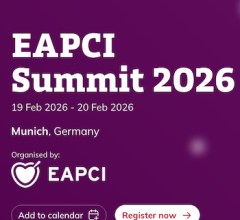
 February 04, 2026
February 04, 2026 
